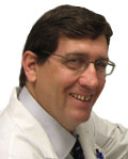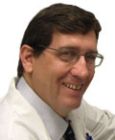Your face hurts and you wonder why. Well, maybe the days of wondering and wandering from doctor to doctor are over. You might be, quite literally, chomping at the bit.
A survey published in "Acta Odontologica" sought to determine whether orofacial pain was associated with bruxism and insomnia symptoms. The researchers found that moderate to severe pain was significantly associated with insomnia and frequent bruxism, in addition to female gender, but negatively associated with age over 45 years.
Bruxism is the jaw clenching or grinding of the teeth that generally occurs during sleep. But it is not limited just to younger females.
The lifetime occurrence of at least some orofacial pain due to nighttime bruxing or daytime clenching or grinding, usually during a time of emotional stress, approaches 100%. At any one time up to 10% of the adult population is dealing with this pain, and a number of these individuals over time develop temporomandibular joint (TMJ) or chronic orofacial pain syndromes, damaging tooth wear, or tooth fracture. The non-restorative sleep, another consequence of bruxism, can cause an equivalent amount of emotional pain. But the vicious circle continues to turn, with sleep bruxism occurring during so-called "microarousals".
Interestingly, while bruxism is more common in individuals with depression and anxiety disorders, the catch-22 of the day is that many of the medications used to treat anxiety and depression can themselves often create new bruxism, or make worse the pre-existing bruxism. And while it may not be reassuring, we humans are not alone when it comes to those afflicted with bruxism: it is interesting to note that bruxism is a not unusual mammalian response to stress.
Of course, it is reasonable to try oral splints. However, caregivers should also focus on the brain, and not just the teeth: depression and anxiety should be ruled in or out, and aggressively treated. Sleep apnea should be ruled out with a sleep study, and treated if found, as sleep apnea is known to be a cause of secondary bruxism.
A novel treatment was described a couple of years back, tiagabine, an anti-seizure medication currently approved by the United States Food and Drug Administration for the treatment of certain types of seizures.
Tiagabine has also been used for the treatment of muscle spasm and neuropathic pain, anxiety, post-traumatic stress disorder, among other afflictions. It is unique among the anti-seizure medications because it increases stage III-IV sleep in human beings, and this may be the mechanism by which tiagabine reduces bruxism, as decreased stage III-IV sleep is seen in nocturnal bruxism.
Tiagabine is certainly worth considering. Why, some of you might be chomping at the bit, more than ready to try it. Ask your health care provider if this is a viable option.


